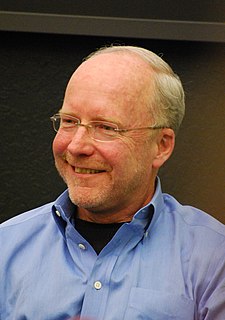A Quote by DJ Spooky
The planet isn't improvising, it's creating dynamic tensions between complex living systems in a planetary choreography, a balancing act between physical, chemical, biological, environmental, and human components.
Related Quotes
Alpha waves in the human brain are between 6 and 8 hertz. The wave frequency of the human cavity resonates between 6 and 8 hertz. All biological systems operate in the same frequency range. The human brain's alpha waves function in this range and the electrical resonance of the earth is between 6 and 8 hertz. Thus, our entire biological system - the brain and the earth itself - work on the same frequencies. If we can control that resonate system electronically, we can directly control the entire mental system of humankind.
There are fundamental tensions between the biological reality of the planet and the economic reality. To some extent you can adapt the economy, create a new set of rules and incentives to send it down a better track, but finally people in the first world are going to have to consume a whole lot less.
There are transitional forms between the metals and non-metals; between chemical combinations and simple mixtures, between animals and plants, between phanerogams and cryptogams, and between mammals and birds [...]. The improbability may henceforth be taken for granted of finding in Nature a sharp cleavage between all that is masculine on the one side and all that is feminine on the other; or that any living being is so simple in this respect that it can be put wholly on one side, or wholly on the other, of the line.
What kind of choice is it, really, when motherhood forces you into a delicate balancing act -- not just between work and family, as the equation is typically phrased, but between your premotherhood and postmotherhood identities? What kind of choice is it when you have to choose between becoming a mother and remaining yourself?
All this long human story, most passionate and tragic in the living, was but an unimportant, a seemingly barren and negligible effort, lasting only for a few moments in the life of the galaxy. When it was over, the host of the planetary systems still lived on, with here and there a casualty, and here and there among the stars a new planetary birth, and here and there a fresh disaster.
In order to survive, all systems must evolve by providing greater and greater access to the currents that flow through them. This applies to all physical, biological and social systems that survive and thrive.... But let’s take that one step forward... the systems just described are ... constantly evolving. This suggests another design principle: ... design for evolution rather than creating a static design optimizing for the present.
In most ecological systems you have a composite, biotic components as well as abiotic components acting together to form a whole, whereas in a human built environment most of the components are abiotic or they are inorganic. One of the first things we need to do is to complement the inorganic components with more organic components, and to make them interact to form a whole.
I think that we live in a remarkably networked world. The problem with that, of course, is that tensions can travel in nanoseconds across the Internet, and so the tensions between Shiites and Sunnis in Baghdad, or between Protestants and Catholics in Belfast - those show up in different parts of the world.
































